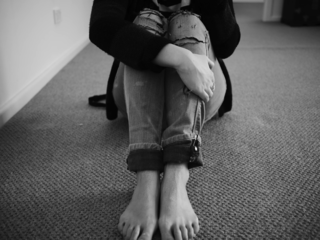There isn’t a single definition of the term ‘vulnerable people’. In life: everybody, no matter their circumstances, is going to be vulnerable at some point. But some that are more vulnerable than others, and over a far longer extended period of time at that. People who need continuous help and assistance in their daily lives because of physical or mental disabilities, because they are of too old a age to look after themselves properly, or because they are too young to help themselves at all, are some of the types of people who can most specifically be described as ‘vulnerable people’. Because of this, we should do all we can to help them.
Image source
Helping those who are vulnerable because they have special needs is probably the hardest of the areas to enter as, for the most part, you have to be professionally trained and qualified to be able to do so. If you ever find yourself in a situation where you are doing so, however, without being professionally trained; you just have to remember to be a nice person. In order to help somebody who has disabilities with a task, you should communicate with them, even when they have a chaperone next to them. If somebody has a interpreter or a nurse by their side doing their talking for them, make sure not to filter the conversations through them and always speak directly to the person in question. Here are ten special needs organisations that you can work alongside.
You can care for any elderly people in your life by tending to their physical well-being. Keeping somebody of an elderly status as active as possible is great way to help them fight disease and reduce their functional age by up to 10 years. But you shouldn’t just seek to combat and watch out for signs of weakness in their physical status — you have to look out for their mental health as well. When it comes to this, signs of forgetfulness, unsteadiness and a general lack of direction are the things to look out for. If you feel that an elderly person needs more that just a little bit of assistance, you could offer extensive companion care on a regular basis. This could include homemaking, driving and overnight assistance, or you could even become a live-in companion.
On the other end of the age spectrum, you should pay attention to any children who you feel may be of a vulnerable status. Like working with people who have certain disabilities, working with vulnerable children, or even just children in general, is something that can only be done by those who are qualified to do so; but there is a free online course in caring for vulnerable children that will help you get the ball rolling if this is something you wish to do. You can spot the signs of child neglect or abuse, however, no matter how qualified or trained you are. The signs of child abuse aren’t always clear cut, especially when the child is too scared to say anything about it, but things you can look out for, and listen out for if you ever have the chance to talk to any children, include: them talking about being left at home either alone or with strangers, seeing a poor bond between them and their parent(s), seeing that they are excessively violent with other children and noticing that they lack the ability to be social, even with other children.
Don’t just help others for the ‘good karma’, do it because it’s a good gesture and because it’ll provide you with a good feeling. You may even find yourself walking down a meaningful career path by doing so.


